Challenging conversations: Compliance through fear, or growth as a result of transparency and kindness?
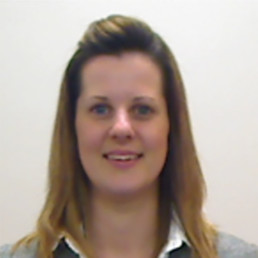
Written by Sarah Johnson-Scott
Vice Principal of a large secondary school in West London. January 2021 Cohort of The Academy of Women’s Leadership.
What is the purpose of a challenging conversation?
Are they opportunities to: raise your voice at others to give them a dressing down; shout at them for making a mistake; assert your power or position; gain compliance through fear and therefore stifle and destroy the creativity, problem solving skills and ultimately output of your team? No, no, NO!
Can they be avoided? NO!
In highlighting that ‘the culture of any organisation is shaped by the worst behaviour the leader is willing to tolerate,’ Gruenter and Whitaker show us the impact of not having challenging conversations. As leaders we will accept and be seen to accept behaviours which are not acceptable in the workplace – if we don’t care as leaders, then no one cares. There is only one ending to this; a toxic culture, where people are unhappy, are not collegiate and productivity is low. Toxic cultures take a grip like quicksand. They are extremely difficult, and sometimes impossible to overcome.
Is there support in ‘mastering challenging conversations?’ YES!
As part of The Academy of Women’s Leadership, the inspiring Diana Osagie led us through an excellent session on ‘How to master difficult conversations,’ across a range of contexts including challenging conversations, holding staff to account and dealing with difficult people. By providing us with three different scripts for leading challenging conversations in each of these contexts, Diana left us feeling empowered, courageous and brave about leading these in future.
What were the top 5 takeaways from Diana’s session?
- Remembering that the behaviour is theirs….so don’t apologise for your stance (you are the leader and you have decided that there is a reason for a challenging conversation).
- Acknowledgement and acceptance that challenging conversations will test your courage and resilience.
- The challenging conversation scripts are invaluable – having a script to tweak when under pressure as a leader is extremely reassuring! They also support in running through the conversation and desired outcomes beforehand.
- The stages of a challenging conversation (you will have to join The Academy of Women’s Leadership to find out what these are!)
- Get some support for yourself – find an appropriate person in your organisation you can talk to about the challenging conversation (they’ve almost definitely led these before).
What’s the future of challenging conversations?
As leaders we recognise that challenging conversations are part of our role, but more crucially are essential for a positive organisational culture, happy staff and excellent outcomes. If they are led with clarity and kindness, and are received appropriately, challenging conversations should promote growth (potentially on both sides) – otherwise what is the point?
The Kate Clanchy Memoir: A Red Flag for DEI
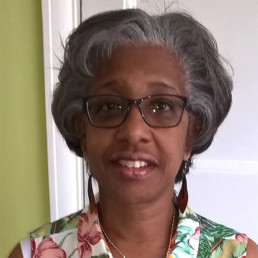
Written by Chiaka Amadi
Chiaka has almost 40 years of experience as a teacher and EAL leader at school and local authority level. Her work as an independent consultant and trainer focuses on language acquisition, literacy development and multilingualism.
In August, I read a succession of tweets about attacks on three WoC writers, Chimene Suleyman, Monisha Rajesh and Sunny Singh which alerted me to the controversy around a book ‘What I Taught Kids and What They Taught Me’. https://minamaauthor.com/2021/08/15/a-controversy-i-recently-read/?like_comment=242
The WoC had challenged the racialised and stereotyped language used by its author, Kate Clanchy, to describe her students. Numerous passages were criticised by a range of commentators citing derogatory descriptions of neurodiverse students; of some students’ choice of clothing; of the very carrying of their bodies. The lively discussion of the book on #DiReadsClanchy was then illuminating in helping me to understand the range of concerns concerning the depictions of the students.
What astonished me the most, however, was how such content could have ever been published as the considered writings of a teacher. How did the editors at Picador, Ms Clanchy’s publishers, perceive her writing? How could those critiqued sections of the book not have rung alarm bells during the editing process?
Even if knowledge of the protected characteristics in the Equality Act 2010 didn’t alert editors to the need for sensitivity and respect in relation to Ms Clanchy’s students, a quick read of Part Two of The Teachers Standards should at least have made them ask if its “high standards of ethics and behaviour” were being fulfilled: https://assets.publishing.service.gov.uk/government/uploads/system/uploads/attachment_data/file/1007716/Teachers__Standards_2021_update.pdf
Did the editors really believe that the words in front of them truly treated pupils with “dignity” and were “rooted in mutual respect”?
It is the children in the book who flag up that there are different life realities, experiences and perceptions at work. Ms Clanchy acknowledges that they teach her “how white I am” and explains to the reader the way the children encode her “super-empowered” membership of the “world’s ruling class” into the word “English”. Did the editors really not feel the need to explore that dynamic both as it appeared on the page and as it evolved as a conceit throughout the book?
Or did Ms Clanchy avoid this particular lesson by diverting to the fact that she is Scottish? This artful manoeuvre leads to the uncritical acceptance by the editors and subsequently by many readers, of Ms Clanchy’s first person narrative. It centres the perspective of a white, middle-class, well educated, abled person as the default for our interpretation. It invites the reader to peer through that particular lens at the students, and as ‘we’ do so, ‘we’ lap up her observations about them and about social matters. ‘We’ are in danger of objectifying and diminishing any student described who does not fit into that normative default, even as Ms Clanchy thinks she is being positive. This is a red flag for DEI activism.
Picador have announced a re-write of the book to remove any “offensive passages”: https://www.theguardian.com/books/2021/aug/10/kate-clanchy-to-rewrite-memoir-after-criticism-of-racist-and-ableist-tropes. Various idioms come to mind, the most polite involving silk purses and sow’s ears. While Ms Clanchy claimed that listening to recent responses to her work had been “humbling”, her publishers by contrast seemed energised, recruiting “specialist readers” to assist with the re-working.
To express my concern at all this, I recently signed an open letter to the publishers: https://docs.google.com/document/d/1EWl1D-Duw2qiwAWUsRANfo8VcqzDMANJ/edit
Picador have now replied to the 350+ signatories of this letter and you can read and evaluate that response here:
https://drive.google.com/file/d/1e0uNH-ivVWBhXav7VD5yl_1mt5CgyAkz/view?usp=sharing.
Please comment if you wish. The feedback is being collated for return to Picador.
I was also pleased to read an open letter from a group of Ms Clanchy’s former pupils: https://www.thebookseller.com/news/clanchy-students-say-they-did-not-experience-safeguarding-or-consent-issues-1278744. I felt able to infer from their articulate and cogent advocacy on behalf of their teacher that their school experiences had contributed to an understanding what it takes to feel part of a community; of the give and take, the to and fro that is part of learning and teaching. They feel safe and confident. Their personal relationship with their former teacher is intact and strong.
However, we cannot shrug our shoulders and say, ‘all’s well that ends well’. To date, no concrete assurances have been given regarding the future ethical standards we can expect from Picador in relation to non-fiction writing about children. The issue is not about the affection or regard that any individuals might hold for others, but the wider debate around representation, ethics, literature and publishing.
As teachers, safeguarding children sits at the heart of our role. All stakeholders in education must ensure that our work does not reinforce stereotypical and clichéd views of children. The whole episode serves as a timely reminder of the need for each of us, in our own contexts to reflect on exactly what our gaze encapsulates. We must consider how our conversations and interactions with, and about children, respect their individuality and humanity. Our words can become wider, more permanent representations of them. We must endeavour to do no harm.
The Importance of Empathy
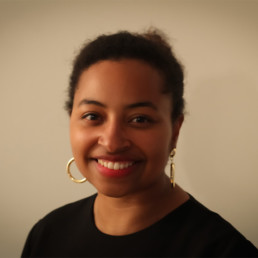
Written by Rebecca Ferdinand
Marketing manager at Lyfta. She has a BSc in Psychology from Durham and has worked for a range of organisations including the Centre for Literacy in Primary Education.
Empathy is one of the fundamental values underpinning our work at Lyfta. In this blog we discuss the scientific evidence for empathy, and talk about how we can nurture it in ourselves and in the children we teach.
This blog first appeared on Lyfta.com. Lyfta is a partner organisation and supporter of DiverseEd.
At a time of continued global disruption and isolation, the importance of being able to have empathetic connections with others – to feel with them and care about their wellbeing – will be critical to ensuring that we build workplaces and societies that can thrive into the future. The children of today all have the potential to build a more peaceful and sustainable world, and empowering them with a strong sense of empathy will enable them to navigate this challenge with sensitivity and compassion.
“Empathy is a quality of character that can change the world.” Barack Obama
But what is empathy? Some confuse empathy (feeling with someone) with sympathy (feeling sorry for someone), but Dr Brené Brown does a good job of explaining this and highlighting Dr Theresa Wiseman’s four attributes of empathy: the ability to perceive others’ feelings, to not stand in judgement of those feelings, recognising or imagining the other person’s emotions, and communicating this effectively. When we connect empathetically, we have better relationships, we become better co-workers and managers, but more importantly, we become more compassionate people – and compassion is vital to a sustainable and humane future.
“Empathy has no script. There is no right way or wrong way to do it. It’s simply listening, holding space, withholding judgment, emotionally connecting, and communicating that incredibly healing message of ‘You’re not alone’.” Dr Brené Brown
Over the past two decades, the evidence that human beings are wired for empathy and social cooperation has grown considerably. Neuroscientists have identified areas of the brain that, if damaged or compromised, can affect our ability to identify and understand others’ feelings. Psychologists have shown that children as young as 18 months are capable of attributing mental states to other people. But empathy is not a fixed ability. Evidence suggests that we can continue to develop our capacity for understanding others throughout our lives, but busy lifestyles and our tendency to surround ourselves with people who look and think like us, mean that we are not often encouraged to take a moment to connect with others. So how can we actively become more understanding, and nurture this ability in the children we teach? Here are four ways we can develop empathy in ourselves and in others:
- Be curious. We increase our capacity for empathy when we interact with people outside of our usual social circle, and encounter lives and world-views very different from our own. You could actively seek out new perspectives by seeking out people on social media who you wouldn’t usually follow, or, if you’re brave enough, making the effort to start up meaningful conversations with any new people you encounter day-to-day.
Research has shown that reading fiction helps people to improve their ability to understand others. Try to seek out stories from as wide a range of perspectives as possible for both yourself and the children you teach. Of course, Lyfta can help you bring real human stories from around the world into your classroom.
- Challenge your prejudices. We all make assumptions about people, and often these are completely unconscious. These might be based around gender, age or racial stereotypes that prevent us from appreciating each person’s individuality. Our biases can seriously hinder our ability to become more empathetic, but acknowledging and challenging them is the first step toward becoming a more understanding person. You can learn more about your biases by taking an unconscious bias test, and tackle them by attending diversity, equity and inclusion workshops or discussions such as those run by the #DiverseEd community.
In the classroom, you could open up discussions on the nature of stereotyping and prejudice, and ensure that you expose your students to people, places and stories that defy widely held expectations. Lyfta gives you access to real immersive human stories from around the world, helping you to start conversations that might otherwise be difficult to initiate during lessons.
- Listen (and be vulnerable). Being an empathetic conversationalist means listening actively. Try to be completely present to the feelings that a person is communicating in their conversation with you. Whether it’s a quick chat with a colleague, or a catch-up with an old friend, do all you can to understand their emotional state and needs. You can model active listening with the children you teach by making sure you give them your full attention during one-on-one conversations, and by reflecting and repeating back what you think they may be feeling to make sure you fully understand.
It isn’t enough to just listen, however. Being vulnerable and revealing our honest thoughts and feelings to others is vital to the creation of strong empathic relationships with both adults and children.
- Take action. Volunteering can be a great way to experience other lives first hand, create real change, and model empathy to students you teach. You can also encourage your students to join (or set up) clubs at school, such as environmental or equalities clubs, or to take action in response to local issues such as going on a litter pick, or organising donations to a food bank in your area.
“Empathy has always been important. Through empathy we understand and support others; it helps us build trusted relationships and our own peace of mind. Building on the strong foundations developed by its founders, Lyfta, and the approach that it nurtures, helps teachers and students raise their awareness of what is going on around us, of other people’s lives and of the wider world. Such awareness is probably more important now than ever before – at school, at work, and in life. I am glad to have experienced and grateful for Lyfta’s contribution to raising awareness, thinking of others, and developing skills appropriate to learning development; to strengthening of empathy; and to building the capability of all students.” Gavin Dykes, Director of the Education World Forum
Nurturing empathy is one of Lyfta’s fundamental aims. We believe that empathy is the first, and possibly most important, step to building a more compassionate, sustainable and equitable world. Our real immersive human stories provide a powerful way to foster empathetic understanding by giving students access to a wide and diverse range of global perspectives, challenging their misconceptions, and motivating action.
Join a free webinar to find out more about using Lyfta’s impactful stories in the classroom, and access a free trial of the platform.
#DiverseEd’s Top 10 Videos of 2020-21

Written by DiverseEd
Diverse Educators started as a grassroots network in 2018 to create a space for a coherent and cohesive conversation about DEI. We have evolved into a training provider and event organiser for all things DEI.
We love to amplify the voices, share the journeys, and celebrate the stories of our community. Our events are inclusive and representative. Our speakers provoke reflection and stimulate discussion by:
- sharing their lived experience;
- reflecting on their classroom practice and curriculum design;
- evaluating the impact of policy changes;
- disseminating strategies for diversifying recruitment and governance.
Last year we hosted:
- 4 virtual conferences
- a #DiverseGovernance series
- a #FastForwardDiversityInclusion series
- Bennie’s book launch
- World Book Day
- A Conversation With…
You can meet our speakers here you can review our events archive here.
Deepening our thinking around DEI starts with who and what we listen to, helping us to develop our confidence and our competence, both individually and collectively. Listening to our community provokes learning through reflection and conversation to help us all understand the breadth and the depth of DEI issues we need to develop an awareness of.
Themes explored in the 2020-21 video collection include: allyship, belonging, coaching, community, culture, curriculum, governance, identity, leadership, mentoring, policy, recruitment, representation, role models, student voice, teaching and wellbeing.
Here are our Top 10 Most-Viewed #DiverseEd Videos in the 2020-21 academic year:
- #DiverseEd Live 2 – Oct ‘20
- #DiverseEd Live 1 – June ‘20
- #DiverseEdGovernance – 14th Jan ‘21
- #DiverseEd Live 3 – Jan ‘21
- #DiverseEdGovernance – 19th Nov ‘20
- Bennie’s Book Launch – 14th Nov ‘20
- #DiverseEdGovernance – 3rd Dec ‘20
- #FastForwardDiversityInclusion Episode 3 – 19th July ‘20
- #DiverseEd Live 4 – April ‘21
- #DiverseEd Live 1: Session 2 (Curriculum) – June ‘20
Thank you to everyone who has spoken at one of #DiverseEd virtual events to date – we appreciate you sharing you experience and expertise with our audience.
Our calendar for 2021-22 is updated regularly here. Please do get in touch if you would like to speak at one of our future events or indeed host us! You can complete our google form for speakers for 2021-22 events here.
As a Woman, I Would Be the Perfect Husband
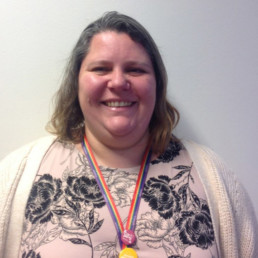
Written by Ninna Makrinov
Organisational Psychologist with over 20 years' experience in Higher Education. Currently the Chair of Governors at Water Mill Primary School.
People sometimes laugh when I say I would be a great husband. I think those who understand the patriarchy in the West might get it though.
This weekend I had a lot of fun washing my car and doing DIY, while my house is a mess. The last three things I bought for myself that gave me joy were a nail gun, a battery-operated drill, and a pressure washer. I love work, I might even be a bit of a workaholic. In my spare time, I volunteer as chair of governors in my local school. I spend the rest of my time gardening, reading and watching TV. I also like sewing and cooking. I am a solo mum with two children, is it a surprise that I just mention them at the end of the paragraph?
It has taken me 40 years and quite a lot of pain to understand that all I described above is fine. That I can be my true self. That I can be loved even if I am a terrible housewife. That it is OK to love my children and say openly that they are not the centre of my life. Are there others who feel the same way? I also often wonder if some men feel trapped too, if they crave to be the main carers and not the main providers in a family. If I can be the perfect husband, they can be the perfect wife. I have noticed too that I have focused on the binary, I understand and respect that gender is a continuum. So I suppose my question is more how we all respond to gender stereotypes. I also realise that I am writing of the ‘traditional’ family, maybe because I crave companionship and community living is not something I know much about or is common enough in the UK. I am also writing as a white, Chilean, cis, heterosexual woman. Please open my eyes to other ways to live!
What does it mean to be a woman?
I am not sure we really know. I recently joined a feminist reading group (I know, late to the party) and it has been great to discover feminism in more depth. It has made me wonder why I define myself as a woman. My preferred pronouns are she and her. I suppose I was naturally a child who liked to please and tried to fit in. It was hard though!
At some point early in life, I might have been 8, I realised life would be easier for me if I was a boy. Most of my friends were boys, I thought girls were silly. I liked Lego, He-Man and Star Wars; I was given Barbies and dolls. I also liked the Care Bears, I must admit. I loved being part of the boys’ world. Why was it a boys’ world though?
A little later, I had to discard some of my ‘dream jobs’. I wanted to be a fighter pilot like my dad but in Chile (where I was born and raised) women were not allowed to join the airforce. Women police officers had to wear high heels, madness! I love that some women were less accommodating, so there are now women fighter pilots in Chile too. In my teenage rebellion I became a Catholic and I would have loved to be a priest; again, not a job for women. I am not going to get into a discussion about religion.
I also remember a time when one of my best friends told me that if I wanted to have a boyfriend I needed to act as if I was less intelligent than they were. I am glad that in that case I realised how stupid that idea was. Maybe that is why I did not have my first boyfriend until I was 17.
I don’t believe being a woman means focusing on being pretty, quiet and subservient. I am a woman. I am a loud leader and I love being the centre of attention. We have moved on in what it means to be a woman. Have we moved on what it means to be a wife though?
Being a wife and a mother
Attitudes are changing, at least in the UK. According to the British Social Attitudes Survey, in 2017 almost three quarters of people disagreed that a man’s job is to earn money and a woman’s job is to look after the home and family. However, In 2018 most people agreed that the mother should take either the entire or most of the paid maternity leave period (52%), while 34% thought it should be split equally and none thought the dad should take most; 13% could not choose. In 2017, most people (51%) also thought that it was best for the mother to stay at home or work part-time and the father to work full-time while children were under school age; none thought I was best for this to be reversed. Interestingly, when only asked about the mother, 33% thought they should stay at home, 38% that they should work part-time and 7% full-time. For mothers of school-age children, 2% thought they should stay at home, 49% prefer for women to work part-time and 27% to work full-time (percentages don’t add up to 100% as some people responded they could not choose). I could go on for ages. Read the excellent Section on Gender Inequality and Family Change section of the Understanding Society Insights 2018-19 for many other details. It clearly states that “there are gender inequalities throughout the life course”, these increase when becoming a parent.
I found the analysis on how our attitudes change when becoming parents very interesting. The report suggests that women change their gender role attitudes when becoming mothers, and it is likely that most progressive women change their attitudes more. The authors suggested this could be due to cognitive dissonance, as women adjust to new roles due to lack of alternatives. I can see this in my experience too. When I became a mother, my role changed from full-time worker to worker and mother; my responsibilities increased. I hated it; particularly when people criticized me for having a messy house while praising my ex-husband for being such a good dad when he changed a nappy. He was a good dad, but that was his role and no-one told me I was a good mum for changing nappies. No-one criticised him for our messy house either, they just wondered what I had been doing all day (I had been working from home).
Living the dream: ‘being a husband’
I had the experience of turning this around when I first became a single mum. Not really in the full sense of being married to someone who did the work. But for a while I was the provider for my family and, because I was living in Mexico, I could afford to pay my sister-in-law to be my ‘wife’ (nanny, cleaner, cook) – to be clear the analogy ends there. The arrangement worked for both of us, her daughters and my sons. It was so lovely to come home from work to a clean house and dinner on the table. I understand why the status quo is kept. Women have ‘earned’ the right to work, we have not earned the right to stop ‘being the wife’. If married, most women take on more caring responsibilities, particularly when becoming mothers. If going solo, we tend to keep children for a bigger percentage of time. I know this is not the case for all, I also know some men would prefer this not to be the case. My point is just, can we just do what we do best, forgetting ‘traditional roles’?
#DiverseEd’s Top 10 Blogs of 2020-21

Written by DiverseEd
Diverse Educators started as a grassroots network in 2018 to create a space for a coherent and cohesive conversation about DEI. We have evolved into a training provider and event organiser for all things DEI.
We love to amplify the voices, share the journeys, and celebrate the stories of our community. Our blogs vary from sharing lived experience, to reflecting on classroom practice and curriculum design, to evaluating the impact of policy changes. We published 150 blogs from our network last academic year. You can meet our bloggers here and you can review our collection here.
Deepening our thinking around DEI starts with who and what we are reading, helping us to develop our confidence and our competence, both individually and collectively. Reading the blogs by our community provokes reflection and stimulates conversations to help us all understand the breadth and the depth of issues we need to develop an awareness of.
Themes explored in the 2020-21 blog collection include: allyship, belonging, careers, coaching, commitment, community, curriculum, culture, governance, HR, identity, ITTE, language, leadership, policy, recruitment, reflection, representation, research, safeguarding, strategy, teaching, wellbeing.
Here are our Top 10 Most-Read #DiverseEd Blogs in the 2020-21 academic year:
- How do we deal with racism in the classroom – Hannah Wilson
- How to promote an anti-racist culture in social work – Wayne Reid
- Interactive diversity calendar 2021 – Carly Hind/ Dual Frequency
- How does material deprivation intersect with ethnicity to understand the variations in the achievement among BAME students – Nicole Edwards
- Don’t tuck in your labels – Bennie Kara
- Dear Secretary of State – Hannah Wilson
- Gender is wibbly wobbly and timey wimey and gloriously so – Matthew Savage
- Engaging with diversity – giving pupils a voice – Gaurav Dubay
- Black lives matter, then now always – Wayne Reid
- Breaking the cycle anti-racist plan term 1 – Dwain Brandy
Thank you to everyone who has contributed to our #DiverseEd date and please do get in touch if you would like us to publish you. You can find out more about how to submit here.
Finding Your Voice to Challenge Broken Systems

Written by Shuaib Khan
Shuaib is a teacher, sociologist, poet and podcaster.
On Saturday June 12th, I had the honour to join Hannah Wilson and Bennie Kara at the Diverse Educators forum for #DiverseEd. The theme I was focusing on was the notion of finding your voice.
After gathering my reflections and then almost losing my train of thought at the realisation one of my heroes, Dr Jill Berry was on the same panel as me, a really powerful conversation began to take place. The protected characteristics I wished to speak about were four-fold; being a British-Pakistani, Muslim educator. The journey that I have been on to reclaim a greater sense of self-pride in each element of my identity is still on-going. A lot of learning and unlearning comes with reflections. Ultimately, I am still on a journey.
After the introductions acknowledging the incredible educators that shared their experiences, the notion of what Nikesh Shukla refers to as the, “good immigrant” was my prominent theme. Before I began my journey, I believed firmly in the notion of being a “good immigrant” and the idea of assimilation and acceptance. Throughout my time at school and career as a teacher, as well as my lived experiences away from education, I was expected to “know my place.” There was always a tacit cultural tolerance that as a Muslim, and particularly as a Pakistani Muslim, raising my head too far above the parapet was frowned upon. Both society at large, and my own community seemed to foster this view. However, against the backdrop of the 2020 Black Lives Matter Movement, I began to realise that despite how much assimilation takes place and to whatever extent I suppressed by race, ethnicity or religion, the “good immigrant” was no longer the label for me.
Why suppress your own identity?
A lot of this is born out of fear. As noted, my identity is four-fold and if I add gender in there, possibly even five-fold. In public spaces I always felt the need to abbreviate my name. I was ‘SK’ to many and I never dared to correct someone for mispronouncing my name. The shame and even fragility of identity politics was ingrained into by society and its structures. When we do a Google search for British-Pakistanis, we are met with a barrage of crass stereotypes. The exact same can be said about Muslims and these derogatory views often made me feel ashamed of where I came from. The media played a huge role in all of this. Whenever a global event involving Muslims occurred, as a child I felt at fault and as an educator, in various establishments, I felt a real sense of shame. However, these are broken systems and this cognitive dissonance I was feeling needed to be challenged.
The turning point really began when I looked through photos of my late Grandfather. He was so fiercely proud of his Kashmiri roots but was unable to articulate his feelings in written to spoken word. Some 60 plus years since he arrived in this country, his vision of social mobility lives on through us. I found my voice to honour my grandfather. I found my voice to elevate the concerns of the community that I live and work in. Ultimately, with finding my voice has come the tremendous responsibility of occupying a platform to help others find their voice.
Hannah and Bennie enabled me to begin an important conversation. Many people out there are confused, disillusioned and apathetic about their identity. There is no magic wand approach. Yet, allowing others to speak on your behalf, without the lived experiences you have, this does your story no justice. For far too long I would wait my turn or relinquish my seat at the table because I felt like I had nothing worthy to say or offer. With organisations like DiverseED and Teacher Hug Radio amongst others, there is both a need and a desire for educators from all backgrounds to pull up a chair and begin to voice their concerns.
In summary #MyDiverseEdPledge was to carry on learning and unlearning and to carry on challenging broken systems. The systems the panellists spoke of; hetro-normativity, unconscious bias, racism and systemic silence, they all must be challenged. Thank you once again to Hannah and Bennie. Please join my journey and I also look forward to hearing all about yours.
You can watch Shuaib’s input at the #DiverseEd event here: https://youtu.be/wnanDncf6Xc
My Journey as an Ally

Written by Ben Hobbis
Teacher, Middle Leader and DSL. Founder of EdConnect and StepUpEd Networks.
I have been on a real journey as an ally. I have been on a journey as a champion for diversity, equity and inclusion. I’m not sure where this passion comes from. I am a heterosexual, white, able bodied man. I know I’ve had it easy compared to my colleagues from different backgrounds within the protected characteristics. I’m not sure where my drive or passion for this comes from. I think it comes out of my moral compass of wanting to help create a more equal and equitable society. I know I can’t change the world, but I know if I don’t play a part I won’t be standing by and living my values.
When I first came into education, I thought inclusion meant ensuring special needs were catered for, that we pushed our gifted and talented children and that we ensured our looked after children and those with medical conditions were cared for. I was naive to think that this was inclusion.
However, I am very fortunate to attend (and soon graduate) from a university, an initial teacher education provider that strongly embodies, embeds and sequences the themes of diversity, equity and inclusion throughout the three years of my Bachelor of Arts in Primary Education. Just to give you some context this is how it was broken down for me:
- First Year – an overview of child development, barriers to learning including SEND, more able, economic deprivation, and English as an additional language.
- Second Year – a whole module dedicated to special educational needs, disabilities, and inclusion; opportunity to complete a placement in a special school.
- Third Year – current issues in education module including sessions on Race, LGBT, Gender, mental health and wellbeing; opportunity to research any area of inclusion and diversity in our educational research module; CPD sessions supporting these topics; in our core module gender issues in STEM is explored.
- All Years – the opportunity to arrange our own placements in special schools, children’s hospitals, and other settings. Opportunity to explore diversity, equity and inclusion on placements.
I’ve spoken to others on similar courses who get the equivalent of a week (if that) to these topics. In some cases, a day. And in some cases, some of these topics are not addressed. As a result, we are doing a disservice to our trainee teachers, our early career teachers, our communities and ultimately our children.
In our current issues module, we produced a training resource on two areas of the module. I chose LGBT and Race. I consider myself to be an ally. To be attuned to the issues (particularly over the last year) that have affected the world. However, I considered, how would I discuss this in the classroom? How would I handle this? And the answer was I didn’t know. Therefore, I felt it my duty to focus my assignment on this. Whilst now having completed the assignment, I am by no means the expert and by no means this being the last piece of CPD I do on the subject; I am pleased to have been supported and encouraged to educate myself further by an institution valuing DEI.
As an ally, I will never fully understand, but I can try to and do everything I can to support others. I have a duty for the children and communities I serve to do so.
Facing up to Privilege
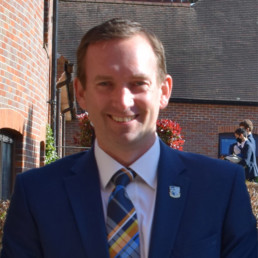
Written by Dan Colquhoun
Director of Sixth Form at Dr Challoner's Grammar School, 20/21 #BigLeadershipAdventure participant.
A personal view of confronting the advantages you’ve had and sharing this across the school community.
The past few weeks have been a time when I’ve been doing a huge amount of thinking and taking action on a lot of things relating to Diversity, Equity and Inclusion. The starting point was the brilliant session led by Hannah Wilson (@DiverseEd2020) and Adrian McLean (@Character_Guy) where we were all encouraged to actively engage in a range of deep-thinking tasks regarding what the key ideas meant to us as well as being encouraged to reflect on what our responses were to some challenging videos, pictures and ideas. What made this experience so powerful for me was the lack of judgement in the session alongside the feeling of psychological safety which enabled me to be honest with myself, and others, about my relative naivety with some of the issues raised.
The idea that particularly chimed with me was around Privilege. Having heard this bandied around previously I have to admit that I found it a word with many negative connotations – akin to spoilt, selfish, arrogant… I knew that I’d been fortunate in my upbringing: a loving, stable family; good school; various opportunities etc. but the idea of seeing myself as privileged didn’t sit well with me and I felt it was more suitable for those in the very highest echelons of wealth.
The video that we were shown of the race for $100 (here) where a range of statements were read out and if they applied to the individual (e.g. had a father figure in home, never worried where the next meal will come from etc.) they get to take two paces forward. After 10 statements the difference in starting position is massive, but as the video states: ‘where you are has nothing to do with anything you’ve done’.
I have watched this a number of times now, and it still causes a very emotional reaction in me. How can I not have realised just how fortunate – how PRIVILEGED – I’ve been all of these years? Having now shared this video with our SLT, my Sixth Form Team as well as with our team of Senior School Officials in both Y12 and Y13, it has been fascinating to listen to their responses and the different aspects that they pick up on. The extra large steps that people are trying to take to get any little additional advantage, the strong link between race and starting position, the importance for those at the front to turn around otherwise they don’t realise quite how far ahead they are of everyone else, and the incredible, powerful, way that many of those at the back still give their absolute best in the race. It gets me every time.
So, do students leave our school realising the extent of their privilege?
At the moment the answer for the vast majority would have to be a resounding no. They attend a selective school in an affluent town in the commuter belt and this bubble that they live in means that they are not exposed to the full breadth of society. They often end up comparing themselves to their, similarly privileged, peers or others in independent schools (the few who are “ahead” of them in the race of privilege) and actually convincing themselves that they’re relatively disadvantaged. Finding ways to encourage them to see themselves within the bigger picture, to take a more global view, is going to be really important.
For some students this can come from when they head to university and mix with a wider, more diverse, group of people. At reunion events it is a regular comment: “I just thought that all schools were like ours until I started speaking to friends at university.” This leads to increased gratitude and awareness of their privilege from attending our school, however it doesn’t suggest that they really understand the depth of privilege from across all aspects of their life that has put them in the position that they are in.
To me it is so powerful to think of what they could achieve if they do have this awareness of their privilege and the moral duty that comes with it to use it to help others who haven’t had the same level of advantage. Equity vs Equality.
So what has happened since this experience of seeing with fresh eyes?
Back in my school I initially shared my key learnings with my SLT colleagues. This led to some really fruitful discussions and we now have DEI as one of our two key school targets for the coming academic year. Sharing thoughts with a number of different teams of staff and students has been amazing and the quality of engagement and contributions at all of these has been so brilliant to see. It is as though everyone is desperate to talk about it, but often doesn’t feel confident enough to always say what they want to. To ask the questions. To simply say they don’t know. By sharing my vulnerability and recent journey has had a very positive impact on the atmosphere in these sessions and allowed people to feel safe and talk openly. ‘Getting comfortable with being uncomfortable.’
I have also had a number of discussions with my team in the Sixth Form about what this all means to us, and what are the key aspects for us to work on with the students. We have also started to make things more visible to students with: posters from Bold Voices around the school; names and email addresses of who to contact if a student has any concerns; policies more visible; a standing agenda item in our meetings; sharing of interesting articles and webinars.
What does the future hold?
We have arranged sessions in a couple of weeks’ time (once Y13s have got their final assessments out of the way), where all interested students are invited into school for two hours, to share their feelings regarding Sexual Harassment, Sexual Abuse and Consent. We’re initially going to have these meetings split by gender to encourage open sharing of what is the reality of things at the moment. We will then see what people are happy to share more widely and capture the honest views of our Sixth Form students as well as thoughts on how we could proceed. Involving the whole school community, and particularly the students, is going to be key in shaping how we move forwards.
Getting all staff on board is vital and we have very successfully embedded positive attitudes towards Mental Health across the school having focussed on working with staff first and then students. I see this as an important path to follow with DEI too: every teacher needs to have the space to engage with the issues themselves before we can expect them to start working with students. We cannot allow any teacher to remain unconsciously incompetent. ‘Doing the inner work before you do the outer work.’
As a school we pride ourselves in sending out well-rounded students prepared to make a positive impact in the world. We must do everything we can to ensure that this encompasses awareness of their individual level of privilege and this is going to be a key aspect for us to get right for the future. I’m excited for what lies ahead!
Education as the Practice of Freedom
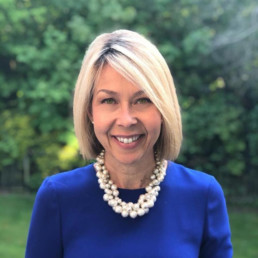
Written by Laura Ciftci
Head of School, NET Academies Trust, #BigLeadershipAdventure participant.
As a rookie member of Big Education’s ground-breaking leadership programme – Big Leadership Adventure – I have been exposed to a wealth and breadth of experiences, key-note speakers, ideas, design-thinking, innovation and new ways of leading. All with the key purpose to ‘develop the mindsets, competencies and behaviours required to innovate in education’.
More recently, we experienced a headline module on diversity, equity and inclusion. Hannah and Adrian McLean, our guides for this module, did not pull any punches and stated from the outset that this session was going to be challenging and would possibly make many members feel rather uncomfortable. Nevertheless, they both insisted, education – especially educational leadership – needs ‘to start getting comfortable with being uncomfortable’. In truth, I found the whole process immensely challenging, both professionally and personally.
In hindsight, the module’s real impact was to champion our cohort into action – real action – with a determination to transfer theory and rhetoric into practice. This rallying cry to alms for all leaders was a clear message on the importance of producing and utilising a diversity, equity and inclusion strategy within our schools. Moreover, instigating conversations that would raise further questions around how we need to rethink teaching practices and policies in an age of multiculturalism. Otherwise, how else would we be able to educate our children to address the many disparities and inequalities within our society?
To Allyship or not to Allyship…? That IS the question:
One such practice and commitment centred round ‘allyship’; more specifically an expectation for all Big Leadership Adventurers to acknowledge and engage with the ‘allyship continuum’: from apathetic, to aware, to active and finally onto the desired goal – to be an advocate for diversity, equity and inclusion. An advocate of diversity, equity and inclusion would actively highlight and raise questions about situations, events, meetings, settings, organisations, senior leadership teams, subject leaders and headteachers, whereby the representation or membership did not reflect the cohort or group they were leading. What struck me as the most poignant part of the whole ‘allyship process’, was a genuine recognition from all the leaders in our cohort, that their journey along the allyship continuum would be a deeply, individual and personal journey.
Moreover, I realised, as I listened to the many painful and explicit narratives of prejudice and racism experienced by my colleagues – as infants, school children and adolescents and now as adults – that my journey to where I am today, had been an infinitely easier one, beyond my ‘disadvantaged’ label. If anything this made my purpose clearer – I wanted to celebrate and showcase our school’s rich diversity, to ensure that we authentically challenged institutional racism and other forms of discrimination. Subsequently, in order to kick start our school’s journey to allyship, we drafted a whole school strategic approach to diversity, equity and inclusion, that embraced the voice of our staff, pupils and wider community. Almost instantly, staff recognised that this commitment would take us beyond diversity, equity and inclusion, but further into social action; the co-dependence of societal changes through a strong, ‘lived’ diversity, equity and inclusion strategy. A focussed strategy, with professional training from the charismatic and knowledgeable Angela Browne helped us to explicitly outline expectations for the culture and climate of our school; facilitating classroom learning to connect with the experiences, histories and resources that every pupil brings to their classroom. Imagine a whole literacy spine that included the cultures, experiences and backgrounds of the pupils they sought to teach! Whilst this process may be in its infancy, we are rightly proud of its authentic germination …
Why here? Why now?
As I reflected further upon the intensity of that diversity, equity and inclusion module, it became apparent we were really being asked to champion a social conscience and critical pedagogy for our future pupils, leaders, work force, politicians and so on. Recognising that pupils and staff need to feel safe, valued, listened to and genuinely appreciated for who they are, rather than complying to a given, predetermined expectation. This sense of belonging, coupled with the freedom and encouragement to determine and discover who they are, would help our pupils to realise that the education system does not define them. Once equipped with the necessary skills, knowledge and beliefs, from diverse and inclusive school communities, they will have the freedom to construct their own unique futures for themselves. Armed with a broad skills base, resilience, acceptance (rather than tolerance, thank you Adrian Mclean for assisting me with the semantics), a good work ethic, humility and an acute awareness of social justice, our pupils and staff will in turn, readily challenge cultural, social and economic biases, that alas, are still systemic within society today. Never has the time been more right to challenge social inequality and to encourage pupils (and staff) to take positive and constructive action under the cultural umbrella of diversity, equity and inclusion.
Hope for the future…
Clearly, the education system is neither perfect nor paradise; quite the contrary in fact. Nevertheless, the system with all its limitations, remains a location of potential, hope and possibility. In that field of possibility, we have the opportunity to work towards diversity, equity and inclusion for our pupils, staff and wider community members. Likewise, to demand of ourselves and those in our charge, ‘an openness of mind and heart that allows us to face reality even as we collectively imagine ways to move beyond boundaries, to transgress. This is education as the practice of freedom’. (Bell Hooks)
And finally…
As our second day of diversity, equity and inclusion module concluded, I felt a deep kinship and professional respect for my fellow ‘Adventurers’. This diverse group of authentic professionals, had challenged me, and in and through that challenge, had allowed me a space of radical openness where I now felt able to authentically support diversity, equity and inclusion, within my own setting. This promising start would, I hope, encourage those in my charge, to learn and grow without limits. This gift of ‘freedom’ for our children today, now seems totally achievable.

